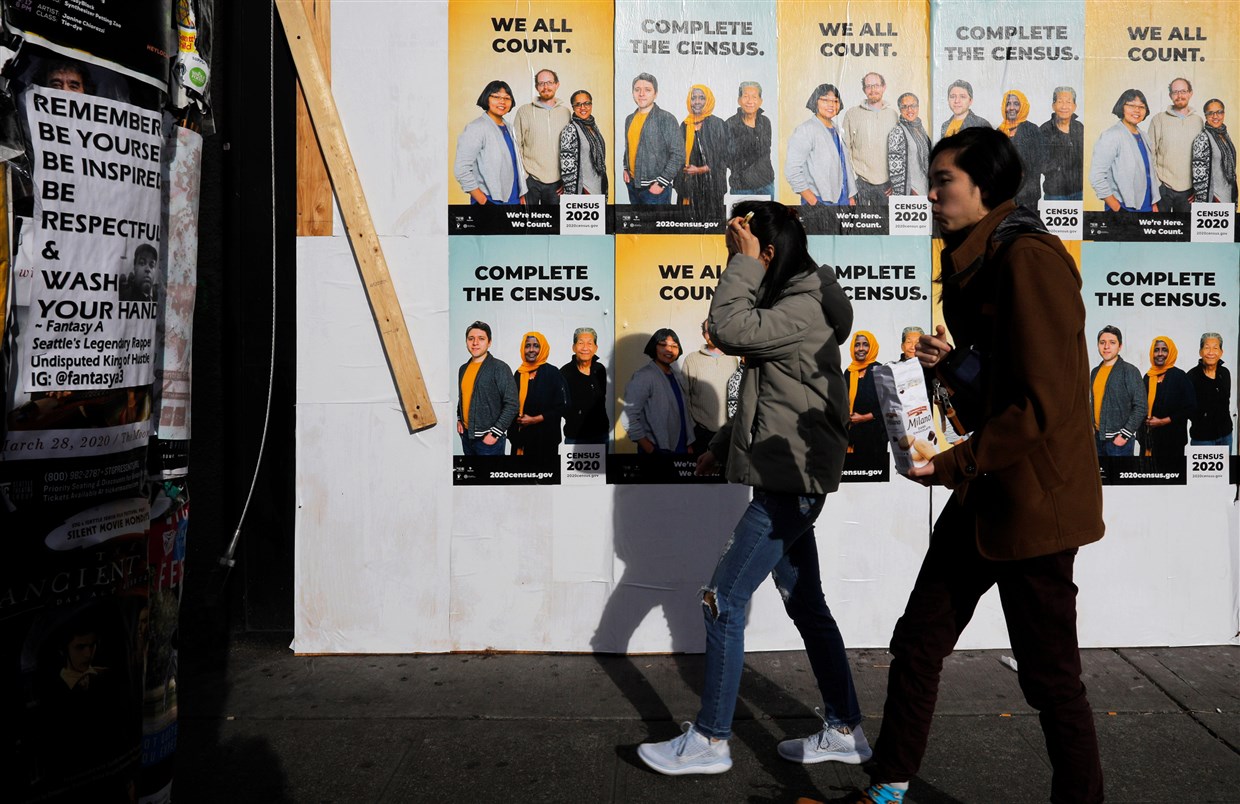
COVID-19 and the Latinx response to the Census and 2020 elections
As COVID-19 disproportionately affects Latinx communities, so are fears of undercounting in the Census and low turnout in 2020 elections
The coronavirus pandemic is not only taking Latinx lives at an alarming rate, it is also projected to interfere with the 2020 census and the upcoming 2020 election in a way that will limit accurate representation.
The progression of COVID-19 in the United States has exposed the vulnerabilities in regards to Black and Latinx communities, who have experienced the biggest impact from the illness.
This highlights the importance of the upcoming 2020 census, in which Latino households are already at risk at being undercounted due to multiple factors. These include language barriers, education, fear campaigns spun about immigrant status, and uncounted Latinx children due to complex living arrangements.
Now, add a global pandemic that disproportionately affects Latinx lives to the mix, and there are a tidal wave of factors working together to limit the Latinx voice.
The racial inequality of COVID-19 has already claimed 170,000 years of life, most of which are Latinx, followed by Black Americans — a toll many cannot begin to comprehend. This loss of life will have a final role in the Census, wherein those largely Black and latinx lost voices will not be counted.
The Census determines who is considered by the government when budgeting and redrawing political lines among many other vital processes. While Latinos are one of the fastest growing demographics in the country, the above factors put Latinos at a high risk of being undercounted.
Misrepresentation of Black and Latinx communities is a reflection of how the 2020 Census may similarly pan-out.
One of the biggest factors in play, is that many Latinx individuals find official race and ethnicity questions do not accurately reflect them.
“Since 1980, the census has asked about Hispanic Identity separately from racial identity. Recent Census Bureau testing indicates that combining the Hispanic ethnicity with the general race question would more accurately reflect the Latino population,” reads a report on Latinos in the 2020 Census.
However, even though the bureau proposed to make these changes on Hispanic origin, the Office of Management and Budget did not accept them.
This only leads to confusion. Take Illinois for instance.
RELATED CONTENT
As of June 18, over 44,000 COVID-19 cases are labeled "hispanic" on the Illinois Department of Public Health dashboard, accounting for 33% of all coronavirus in the state. Hispanics and Latinos make up just 17% of the state's population.
The problem is many factors signal the numbers are greater.
Health professionals are concerned of incomplete or inaccurate racial and ethnicity data being used to track cases, signaling an even greater number for Latino cases of infection.
In a report by WWTW, health officials report many ethnic responses “left blank” pertain to Latinos, with data suggesting Latino surnames are being labeled as white, or where race/ethnicity has been left undefined.
The same issue is happening in South Carolina, where the true toll on the Latinx community is not able to be analyzed because of incomplete data. They’re essentially missing from the radar.
This is a real concern for what could be happening with the 2020 Census, and even upcoming elections, as the Census will determine future redistricting.
The Latinx community is already undercounted. If this is intensified by the pandemic, political boundaries designated by the 2020 census will not accurately reflect reality. They will essentially be denied a voice that reflects their totality.











LEAVE A COMMENT: